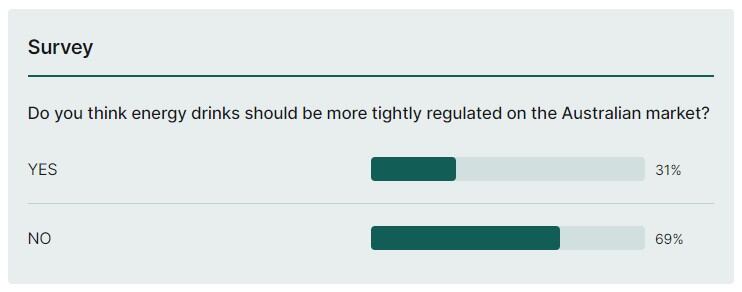Shani Clarke revealed this week that her son – 35 year-old truck driver Michael Clarke – died from caffeine toxicity on January 30 2014.
He used to drink at least four 500ml cans of Coke Amatil brand Mother a day, as well as 4-5 cups of coffee.
Shani Clarke has setup a Facebook page called Caffeine Toxicity Death Awareness to educate people, she says, and to help those “who have lost loved ones because of caffeine poisoning”.
On Channel 10's The Project, in an episode screened yesterday that you watch below, she also spoke of her loss, and her belief that energy drinks should be more tightly regulated - namely a ban on sales to under 18s, more prominent warning labels, and even a limit on sales to adults.
You can also vote on this issue by taking part in our poll at the bottom of this story.
'All ingredients in Mother are safe to consume': Coca-Cola Amatil
Approached for a comment, Sarah Prestwood, public affairs manager at Coca-Cola South Pacific, told BeverageDaily.com: “All ingredients in Mother are safe to consume and permitted by Australian food authorities.
“We also make it clear on our labels that 500ml is the maximum daily amount and list out all ingredients on our packs,” she added.
Prestwood said a 500ml can of Mother contained the same amount of caffeine (around 160mg) as a 250ml cappuccino.
Coca-Cola Amatil also referred us to a September 2 media statement from the country’s leading soft drinks trade body, the Australian Beverages Council (ABCL), after Clarke called for better warnings on drinks and a ban on their sale to kids.
But CEO Geoff Parker insisted that the nation’s cap on caffeine content – equivalent to an instant cup of coffee for a 250ml can (80mg) – mean that Australia’s energy drinks regulations are the “tightest in the world”.
Addressing Michael Clarke’s death, he said: “We are yet to receive full details so are unable to comment on the circumstances surrounding this tragic case.
“The Australian energy drinks market is one of the most regulated in the world and products across the category are clearly labelled with a 500ml daily usage maximum,” he added.
“We certainly do not encourage over consumption of energy drinks, which is why all drinks are clearly labelled with total caffeine amounts and maximum usage recommendations. Energy drinks are completely safe to consume in moderation,” Parker said.
Do you think energy drinks should be more tightly regulated in Australia?
Parker said that Australian soft drinks industry commits to the following ABCL guidelines on energy drinks:
- Energy drinks are not available in primary or secondary schools
- Marketing and advertising of energy drinks is not directed at children
- No promotions are undertaken that encourage excessive consumption
- Labels do not promote mixing energy drinks with any other beverage

